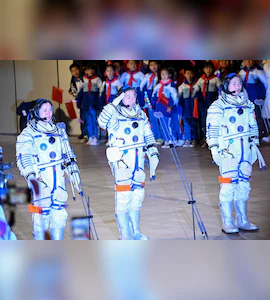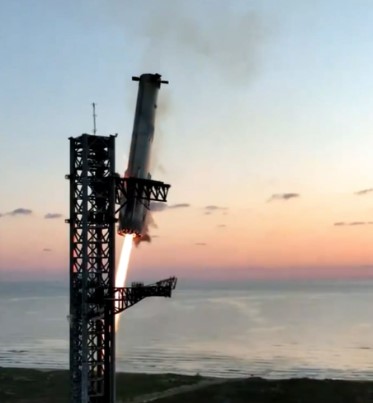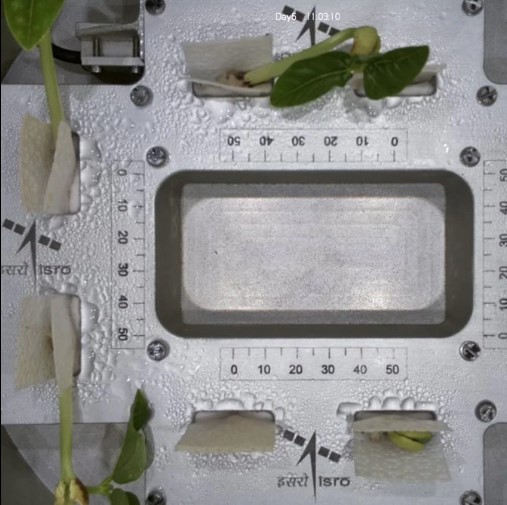In the early hours of Wednesday, a new team of Chinese astronauts took off on an exciting mission to the Tiangong space station. This mission, called Shenzhou-19, is filled with daring goals and advanced experiments. At exactly 4:27 am local time, the Shenzhou-19 spacecraft blasted off from the Jiuquan Satellite Launch Center in northwest China. Onboard were three astronauts, each selected to carry out specific tasks in space as China’s space program aims to establish a presence on the Moon by 2030.
The team’s goal is to perform experiments that will contribute to these big plans, including the dream of building a lunar base. The mission is already being celebrated as a “complete success” by China’s space agency. The astronauts will remain on the space station for nearly six months, during which they’ll hand over to another team in April or May next year. The journey of these astronauts marks another step forward in China’s ambitious “space dream.”
New Crew, New Experiments
The three-member crew of Shenzhou-19 includes two men and one woman, all of whom have unique roles on this mission. Leading the team is an experienced space traveler who previously spent time aboard the Tiangong space station on an earlier mission. He carries the responsibility of heading up tasks and guiding the rest of the team during this challenging journey. The astronaut said he feels “great honor” in being selected for the crew and shared that they are “fully prepared” for the mission—both physically and mentally.
Joining the mission to Tiangong as China’s only female spaceflight engineer is a 34-year-old astronaut whose journey has captured the attention of many. Before the launch, she expressed her dream of reaching the space station and doing important work that contributes to China’s achievements in space. She also spoke of her hopes to travel beyond the station, even dreaming of seeing the stars up close. This makes her the third woman astronaut to ever participate in a crewed space mission for China, and her excitement for the mission and her goals in space represent China’s plans now revolving around the “space dream.”
The youngest member of the crew, another 34-year-old astronaut, completes this team. Together, they are set to carry out essential experiments during their six-month stay on the Tiangong space station. The crew currently on Tiangong will complete handover procedures with the Shenzhou-19 team before returning to Earth on November 4, ensuring a smooth transition and continuity of work on the space station.
Ambitious Goals for China’s Tiangong Space Program
China’s space program, under the leadership of its president, has been advancing rapidly in recent years, driven by the goal of achieving milestones in space exploration. China became the third country in the world to send humans into space and has achieved remarkable feats, such as landing robotic rovers on Mars and the Moon. The program’s most prized project, the Tiangong space station, is now the primary focus, staffed by teams of three astronauts who rotate every six months. These crews not only live in space but also carry out critical experiments, adding to China’s understanding of space and paving the way for further exploration.
One of the experiments planned for the Shenzhou-19 mission will focus on “lunar bricks” created from materials that mimic the soil found on the Moon. These items will be delivered to Tiangong by the Tianzhou-8 cargo ship in November. Chinese scientists aim to test how these “bricks” respond to the harsh environment of space, including high levels of radiation, extreme temperature changes, and unique gravitational conditions. The results of these tests are expected to be important for future construction plans, as scientists hope to use materials found on the Moon itself for building structures rather than transporting costly materials from Earth.
China’s Journey to the Stars
Since the launch of its space program, China has poured significant funding and effort into becoming one of the leading space-faring nations. Achievements like successfully landing its Chang’e-4 probe on the far side of the Moon in 2019—a world first—demonstrate China’s growing capability in space. Two years later, in 2021, a small robotic rover successfully landed on Mars, an accomplishment that places China among an elite group of nations with robotic exploration capabilities.
Tiangong, China’s first multi-module space station, is planned to be operational for about ten years. Its core module was launched in 2021, setting the stage for China’s manned missions and expanding its footprint in space. Each new mission and every experiment conducted onboard adds to the knowledge and experience necessary for reaching the Moon and beyond. The Shenzhou-19 mission is considered essential for building this experience, as it includes complex tasks that test both the astronauts and the technologies supporting them in space.
As China sets its sights on the Moon, the Tiangong station remains a symbol of the country’s dedication to exploring new frontiers. Through the Shenzhou-19 mission, China is showing the world that it is ready to reach even greater heights, expanding human presence in space and working towards its goal of one day constructing a lunar base.




